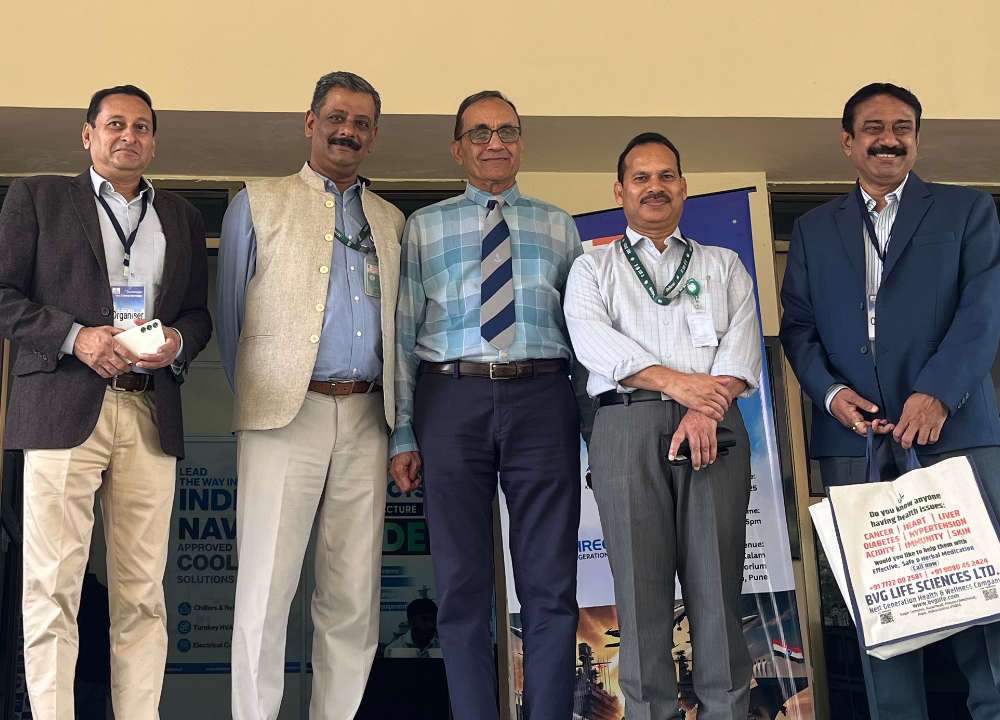The rapid urbanization of modern cities has fueled the need for smart city solutions that emphasize sustainability, citizen-centric services, and an enhanced quality of life. As global cities work toward optimizing infrastructure and resource management, intelligent technologies play a critical role in driving transformation. The selection of standardized and contextually relevant solutions is crucial for the success of smart city initiatives.
The Telecom Standards Development Society of India (TSDSI), India’s Telecom Standards Development Organization and a Type 1 partner of the global oneM2M Partnership Project, hosted the oneM2M Stakeholders Day on February 12, 2025, at the Research & Innovation Park, IIT Delhi, New Delhi. During the event, TSDSI officially released the white paper titled Innovations for Sustainable Urban Living: Insights into Smart City Solutions, marking a significant step in advancing smart city technologies.
Anuradha Vattem, the lead author and Chief Technology Architect at the Smart City Living Lab, played a key role in developing this white paper. She acknowledged the invaluable contributions of TSDSI and numerous stakeholders from academia and industry, who provided critical insights that shaped the document.
The white paper outlines essential components for implementing reliable, scalable, and user-friendly smart city solutions, illustrated through case studies. The key findings highlight the importance of smart city-specific solutions, emphasizing tailored innovations to enhance urban living.
Additionally, the study underscores the need for standardization and regulatory frameworks to ensure seamless integration and compliance across smart city initiatives. It also explores the role of existing sandbox environments and living labs, which serve as testing grounds for new technologies.
Lastly, the findings identify challenges and gaps in current implementations while providing recommendations for the way forward, paving the path for more efficient and sustainable smart city development. The Smart City Living Lab at IIIT Hyderabad was featured as a key case study, demonstrating the successful deployment of smart city solutions aligned with standard frameworks such as oneM2M and the Indian Urban Data Exchange (IUDX). Additionally, the paper presents various use cases implemented across India.
“The reviewers appreciated the paper’s comprehensive perspective and its real-world examples of smart city solution development,” said Anuradha Vattem. The event brought together representatives from global oneM2M partner organizations, the Department of Telecommunications (DoT), the International Telecommunication Union (ITU), TSDSI, the Telecommunication Engineering Centre (TEC), the National Urban Digital Mission (NUDM), industry leaders, and other key stakeholders. This collaborative environment fostered discussions on innovation and the future of IoT and smart city initiatives.
As part of the event, Anuradha Vattem participated in a panel discussion titled Indian Perspective: IoT/M2M Deployment Scenarios & Possibilities in the Context of oneM2M. She also presented the various initiatives undertaken by IIIT Hyderabad as part of its academic engagement with oneM2M.
The Smart City Living Lab demonstrated its cutting-edge innovations at an exhibition, featuring live demonstrations of its latest advancements in urban technology. One of the highlights was the City IoT Operating Platform (ctOP), a lightweight solution built on oneM2M standards. This platform enhances interoperability and streamlines vendor integration, making smart city deployments more efficient and adaptable.
Another key showcase was the Digital Twin for Water Networks (DTWN), a sophisticated digital twin implementation designed to optimize the management of urban water infrastructure. By leveraging real-time data and advanced simulations, DTWN aims to improve decision-making, enhance resource efficiency, and support the sustainable development of smart cities.
Both demonstrations received positive feedback from attendees. R. Hechwartner, oneM2M TP Chair (Deutsche Telekom), commended the ctOP platform for its innovative approach, emphasizing its potential to provide standardized, reliable, and scalable smart city solutions. “I’m grateful for the opportunity to present our work at this event,” said Ushasri Mogadali, an engineer at the Smart City Living Lab. “It was an excellent platform to showcase oneM2M use cases, and I’m thrilled by the positive response from visitors toward the solutions we’ve developed.”
The Smart City Living Lab is an open-innovation ecosystem established as part of the Smart City Research Centre at IIIT Hyderabad. Operational since May 2020, it is funded by the Ministry of Electronics and Information Technology (MeitY) with support from the Smart Cities Mission and the Government of Telangana. The lab transforms the IIIT Hyderabad campus into a microcosm of a smart city, facilitating research, experimentation, and showcasing of innovative urban solutions. It serves as a hub for collaboration, enabling stakeholders to share, connect, and explore smart city technologies.
The International Institute of Information Technology, Hyderabad (IIITH) is an autonomous research university founded in 1998. The institute specializes in core areas of Information Technology, including Computer Science, Electronics and Communications, and their interdisciplinary applications. IIITH’s research spans various domains, such as Visual Information Technologies, Human Language Technologies, Data Engineering, VLSI and Embedded Systems, Computer Architecture, Wireless Communications, Information Security, Robotics, Building Science, Earthquake Engineering, Computational Natural Sciences, Bioinformatics, Education Technologies, Power Systems, IT in Agriculture, and e-Governance, aiming to create a broader social impact through innovation.








